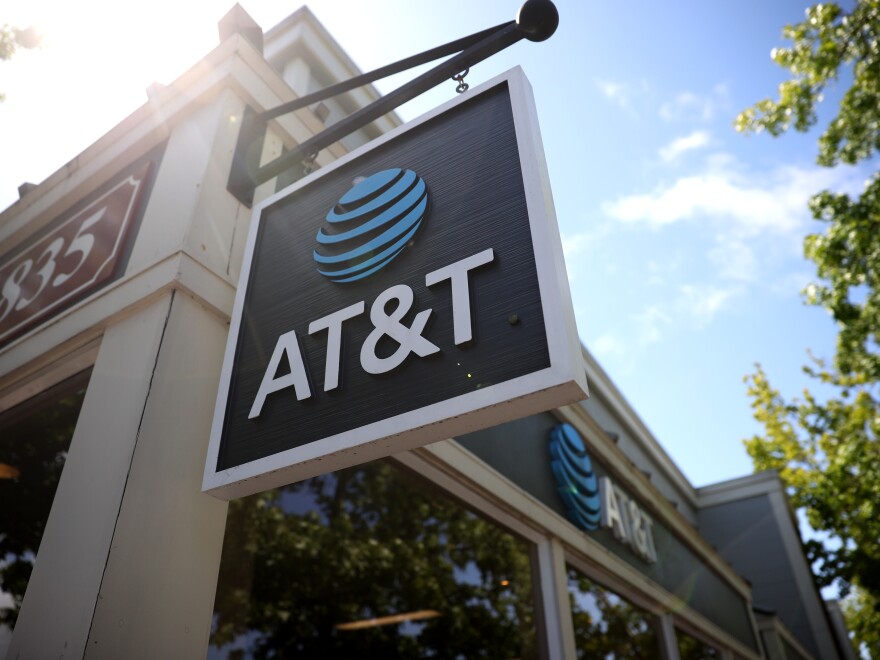Updated February 22, 2024 at 2:59 PM ET
AT&T says it has restored about three-fourths of its cellphone network after tens of thousands of customers in cities across the country lost service overnight, causing frustration and concern about disruptions to 911 dispatches.
Around 3:30 a.m. ET Thursday, outages reported by downdetector.com suddenly spiked from just a handful, peaking at more than 73,000 by around 8:20 a.m. ET. By 1:48 p.m. ET, however, the number of reports to the website were down to just over 4,000.
In a statement emailed to NPR at 11:30 a.m. ET, AT&T said: "Some of our customers are experiencing wireless service interruptions this morning. Our network teams took immediate action and so far about three-quarters of our network has been restored. We are working as quickly as possible to restore service to remaining customers."
Earlier, Downdetector said that Houston, Dallas, San Antonio, Chicago, Indianapolis, New York, Miami and Charlotte reported the highest number of outages. Houston had more than 2,000 reports by about 8:30 a.m. ET, while New York reported about 1,300.
However, service disruptions caused concern Thursday morning even outside those areas, with the San Francisco Fire Department announcing on X, formerly Twitter, that it was "aware of an issue impacting AT&T wireless customers from making and receiving any phone calls (including to 911)."
"We are actively engaged and monitoring this. The San Francisco 911 center is still operational. If you are an AT&T customer and cannot get through to 911, then please try calling from a landline. If that is not an option then please try to get ahold of a friend or family member who is a customer of a different carrier and ask them to call 911 on your behalf. Do not call or text 911 to simply test your phone service," the department said.
A survey conducted by the National Center for Health Statistics found in 2022, nearly 71% of adults and 82% of children lived in wireless-only households.
Even if a cellular service provider is down, anyone with a cellphone can still place an emergency call or text, according to 911.gov. "However, calls to 911 on phones without active service do not deliver the caller's location to the 911 call center, and the call center cannot call these phones back to find out the caller's location or the nature of the emergency. If disconnected, the 911 center has no way to call back the caller," the website says.
Jared Juliano, assistant director for Prince William County Department of Public Safety Communications in Virginia, says 911 service there was never really disrupted, but calls coming in from AT&T phones did not have location information or what he describes as an "advanced caller ID."
However, he says 911 dispatchers "always verify a location even when we get locations from these numbers."
Police in the Charlotte-Mecklenburg area in North Carolina said that customers were "briefly unable to contact 9-1-1. There are no disruptions to our call center's ability to receive 9-1-1 calls. Service should be returning shortly."
The outage did not appear to have any real impact on other providers. Verizon said its network was "operating normally."
"Some customers experienced issues this morning when calling or texting with customers served by another carrier," a company statement said.
Likewise, T-Mobile said in a statement that its network "is operating normally."
The outages occurred around the same time as a solar flare, according to the National Oceanic and Atmospheric Administration (NOAA). The agency said the flare — "an eruption of energy from the Sun that usually lasts from minutes to hours" reached Earth at 1:32 a.m. ET.
NOAA says such flares can affect high-frequency radio signals, but only on the sunlit side of the Earth.
Copyright 2024 NPR. To see more, visit https://www.npr.org.

